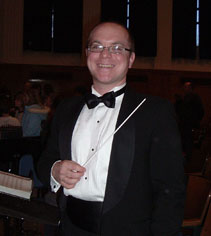How to be a student leader without the title.
Note from the Writer: This article was originally written for a workshop with the student leaders at Kokomo High School in Kokomo, Ind. Strong student leadership is an absolute necessity in order to achieve success in the marching arts. The standard procedure for most high schools is to interview and hold auditions for these positions, with the end result being that the best candidate for the job earns the title of “section caption” or some other title that connotes authority. Once rehearsals start, these section leaders are given the “power” to lead their sections through the season under the process begins again the following year.
The reality of the situation, however, is that in order to run an efficient and successful organization, the majority of the leadership must come from those members who have no official title. If the “section leaders” were the only members of the band to actually lead and set the correct example, then there would obviously be little to no rehearsal etiquette, order or progress throughout the season.
A Freshman’s First Impression
Real progress starts the first day of rehearsal when the new members enter the field for the first time and immediately see a trend among the older band members: Everyone is quiet, listening for instructions; everyone is standing in the proper position; everyone is wearing proper rehearsal attire; and most importantly, everyone is trying their hardest at every single task they are given.
As a result, these new members do not even need to ask their section leader, “What do I do now?”
They simply look at you and everyone else around you, and it is so incredibly clear; the new members follow the lead of their peers and immediately understand how to act during rehearsal.
Think back to when you were a freshman or incoming member of the band, and you stepped onto the field during your first rehearsal. What did you notice?
Was everyone on exactly the same page, setting a great example, making it completely clear what you needed to do? or was everyone different; some people setting a good example, some people not talking but still not listening or behaving correctly, and some people clearly out of order?
The latter, in my experience, is the most common situation, where there is no clear example set for the new members.
The Responsibility of Upperclassmen
As an upperclassmen and veteran of your organization, it is your responsibility to lead by example and help the band reach its maximum potential.
It is important to remember that if you do not hold the official title of “captain” or whatever your band uses, you do not have the authority to publicity or aurally attempt to lead your section (unless of course you are instructed otherwise by your section leader or staff). It is also important to reiterate that just because you do not hold an official title does not mean you are not a leader.
When people enter a world that is new to them, in our case, the world of the marching arts, they are quite understandably unsure about what exactly is going on, how to act and what is expected of them. Additionally, as most new members are young (roughly 14 years old) and impressionable, they may want to fit in as quickly as possible.
As veterans of your band, you have the power and responsibility to help those new members and shape your band the way you want it to be. New members will respond immediately if they see everyone around them doing the same thing, the same way, at the same time.
Do not underestimate the power of leading by example and the responsibility you hold as a veteran member of your band. When every single person in your group works together and sets a clear example for all to follow, that is the true essence of leadership.
To quote the great American writer Henry Miller, “the real leader has no need to lead–he is content to point the way.”
About the Author
Robert Stein is the owner and founder of Standing ‘O’ – Marching Arts Specialists. Rob is a graduate of The University of the Arts in Philadelphia. He holds a master’s degree in music education and a bachelor’s degree in trumpet performance. Rob started his drum corps career marching with the Jersey Surf Drum and Bugle Corps and aged out with the Concord Blue Devils. Rob is a judge for both USSBA and Cavalcade of Bands circuits and is also a member of the brass staff for the Bushwackers Drum and Bugle Corps and the Jersey Surf Drum and Bugle Corps. In addition, Rob teaches elementary instrumental music in the East Windsor (N.J.) Regional School District and marching band education at the School of Music at The University of the Arts.


